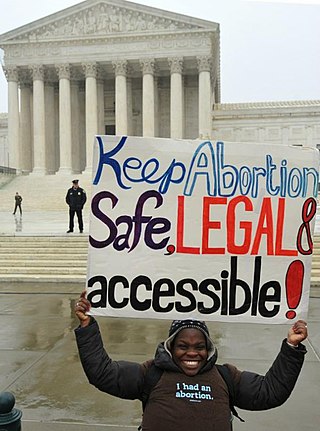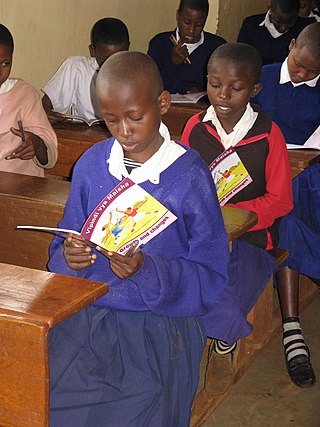
The United Nations Foundation is a charitable organization headquartered in Washington, D.C., that supports the United Nations and its activities. It was established in 1998 with a $1 billion gift to the United Nations by philanthropist Ted Turner, who believed the UN was crucial for addressing the world's problems. Originally primarily a grantmaker, the UN Foundation has evolved into a strategic partner to the UN, mobilizing support to advance the Sustainable Development Goals (SDGs), and help the UN address issues such as climate change, global health, gender equality, human rights, data and technology, peace, and humanitarian responses. The UN Foundation's main work occurs through building public-private partnerships, communities, initiatives, campaigns, and alliances to broaden support for the UN and solve global problems. The UN Foundation has helped build awareness and advocate for action on, among others, antimicrobial resistance, regional action on climate change, local implementation of the SDGs, as well as global campaigns such as Nothing But Nets against malaria, the Measles & Rubella Initiative, the Clean Cooking Alliance, Girl Up, Shot@Life, and the Digital Impact Alliance, among others. In March 2020, the UN Foundation was also a key founder of the COVID-19 Solidarity Response Fund on behalf of the World Health Organization (WHO), helping to raise over $200 million USD within the first six weeks to support the global response to the COVID-19 pandemic.

Family planning is the consideration of the number of children a person wishes to have, including the choice to have no children, and the age at which they wish to have them. Things that may play a role on family planning decisions include marital situation, career or work considerations, financial situations. If sexually active, family planning may involve the use of contraception and other techniques to control the timing of reproduction.

Maternal death or maternal mortality is defined in slightly different ways by several different health organizations. The World Health Organization (WHO) defines maternal death as the death of a pregnant mother due to complications related to pregnancy, underlying conditions worsened by the pregnancy or management of these conditions. This can occur either while she is pregnant or within six weeks of resolution of the pregnancy. The CDC definition of pregnancy-related deaths extends the period of consideration to include one year from the resolution of the pregnancy. Pregnancy associated death, as defined by the American College of Obstetricians and Gynecologists (ACOG), are all deaths occurring within one year of a pregnancy resolution. Identification of pregnancy associated deaths is important for deciding whether or not the pregnancy was a direct or indirect contributing cause of the death.
Reproductive rights are legal rights and freedoms relating to reproduction and reproductive health that vary amongst countries around the world. The World Health Organization defines reproductive rights as follows:
Reproductive rights rest on the recognition of the basic right of all couples and individuals to decide freely and responsibly the number, spacing and timing of their children and to have the information and means to do so, and the right to attain the highest standard of sexual and reproductive health. They also include the right of all to make decisions concerning reproduction free of discrimination, coercion and violence.
Population Connection is a US-based non-profit organization that educates young people and advocates for progressive policies to stabilize world population at a level that can be sustained by Earth's resources.

Pathfinder International is a global non-profit organization that focuses on sexual and reproductive health and rights, including reproductive health, family planning, HIV/AIDS prevention and care, and maternal and newborn health. The organization operates in more than 15 low- and middle-income countries in Africa and South Asia. Its website states: "Pathfinder is driven by the conviction that all people, regardless of where they live, have the right to decide whether and when to have children, to exist free from fear and stigma, and to lead the lives they choose."

Sexual and reproductive health (SRH) is a field of research, health care, and social activism that explores the health of an individual's reproductive system and sexual well-being during all stages of their life. Sexual and reproductive health is more commonly defined as sexual and reproductive health and rights, to encompass individual agency to make choices about their sexual and reproductive lives.
The Women's Refugee Commission is a 501(c)(3) Non-Governmental Organization that aims to improve the lives and protect the rights of women, children, and youth displaced by conflict or crisis. Established in 1989 by Norwegian Actress and film Director Liv Ullmann and others, it was part of the International Rescue Committee (IRC) until 2014.

Reproductive justice is a critical feminist framework that was invented as a response to United States reproductive politics. The three core values of reproductive justice are the right to have a child, the right to not have a child, and the right to parent a child or children in safe and healthy environments. The framework moves women's reproductive rights past a legal and political debate to incorporate the economic, social, and health factors that impact women's reproductive choices and decision-making ability.
Contraceptive security is an individual's ability to reliably choose, obtain, and use quality contraceptives for family planning and the prevention of sexually transmitted diseases. The term refers primarily to efforts undertaken in low and middle-income countries to ensure contraceptive availability as an integral part of family planning programs. Even though there is a consistent increase in the use of contraceptives in low, middle, and high-income countries, the actual contraceptive use varies in different regions of the world. The World Health Organization recognizes the importance of contraception and describes all choices regarding family planning as human rights. Subsidized products, particularly condoms and oral contraceptives, may be provided to increase accessibility for low-income people. Measures taken to provide contraceptive security may include strengthening contraceptive supply chains, forming contraceptive security committees, product quality assurance, promoting supportive policy environments, and examining financing options.
HealthRight International, formerly known as Doctors of the World-USA, is a global health organization, based in New York City. HealthRight was founded in 1990 by physician and human rights advocate Jonathan Mann.

Marleen Temmerman is a Belgian gynaecologist, professor and former Senator, currently heading the Centre of Excellence in Women and Child Health at Aga Khan University in Nairobi, Kenya.
Sexual and reproductive health and rights or SRHR is the concept of human rights applied to sexuality and reproduction. It is the recognition of every person’s right to make fully informed and self-determined decisions about their sexual participation, such as contraception use, sexual partners, and access to sexual health information and services, without discrimination, violence, and/or coercion. SRHR encompasses a combination of four distinct yet interconnected fields, which may exhibit varying degrees of distinction depending on the specific context. These four fields include sexual health, sexual rights, reproductive health and reproductive rights. In the broad concept of SRHR, these four fields are treated as separate, but are inherently intertwined.
Established in 2005, The Partnership for Maternal, Newborn & Child Health (PMNCH) is the world’s largest alliance for women’s, children’s and adolescents’ health and well-being, with over 1,400 partner organizations working together through 10 constituency groups: partner governments, donors and foundations, NGOs, adolescent and youth groups, private sector organizations, health professional associations, academic and research institutions, global financing mechanisms, inter-governmental organizations, and UN agencies. PMNCH is hosted by the World Health Organization, based in Geneva.
Foreign aid for gender equality in Jordan includes programs funded by governments or non-governmental organizations (NGOs) that aim to empower women, close gender based gaps in opportunity and experience, and promote equal access to education, economic empowerment, and political representation in the Hashemite Kingdom of Jordan.
Zulfiqar A. Bhutta is a physician. He holds titles across various organizations in diverse geographies. Professor Bhutta is the Founding Director of the Center of Excellence in Women and Child Health & Institute for Global Child Health & Development, at the Aga Khan University South-Central Asia, East Africa & United Kingdom.

Menstrual hygiene management (MHM) or menstrual health and hygiene (MHH) is the access to menstrual hygiene products to absorb or collect the flow of blood during menstruation, privacy to change the materials, and access to facilities to dispose of used menstrual management materials. It can also include the "broader systemic factors that link menstruation with health, well-being, gender equality, education, equity, empowerment, and rights". Menstrual hygiene management can be particularly challenging for girls and women in developing countries, where clean water and toilet facilities are often inadequate. Menstrual waste is largely ignored in schools in developing countries, despite it being a significant problem. Menstruation can be a barrier to education for many girls, as a lack of effective sanitary products restricts girls' involvement in educational and social activities.
Feminist foreign policy, or feminist diplomacy, is a strategy integrated into the policies and practices of a state to promote gender equality, and to help improve women's access to resources, basic human rights, and political participation. It can often be bucketed into three categories: rights, resources, and representation. The concept was first coined and integrated into governmental policy by Margot Wallström, former Swedish Foreign Affairs Minister. The objectives of feminist foreign policy include :

Climate change is a global phenomenon with wide-ranging and profound impacts on various aspects of human life. Beyond its well-known environmental consequences, climate change significantly affects human health, including the realm of sexual and reproductive health and rights (SRHRs). Nowhere are these impacts more pronounced than in Africa, a continent that is particularly vulnerable to the effects of climate change due to its socio-economic, geographic, and ecological factors. Understanding the intersection between climate change and SRHRs is crucial for developing holistic and effective strategies to address these interconnected challenges.
In the Gambia, abortion is illegal except to save the life of the mother or to prevent birth defects. Abortions in the Gambia have high rates of mortality and complications. Abortions are common among adolescents. There is a stigma surrounding extramarital pregnancy and abortion.








